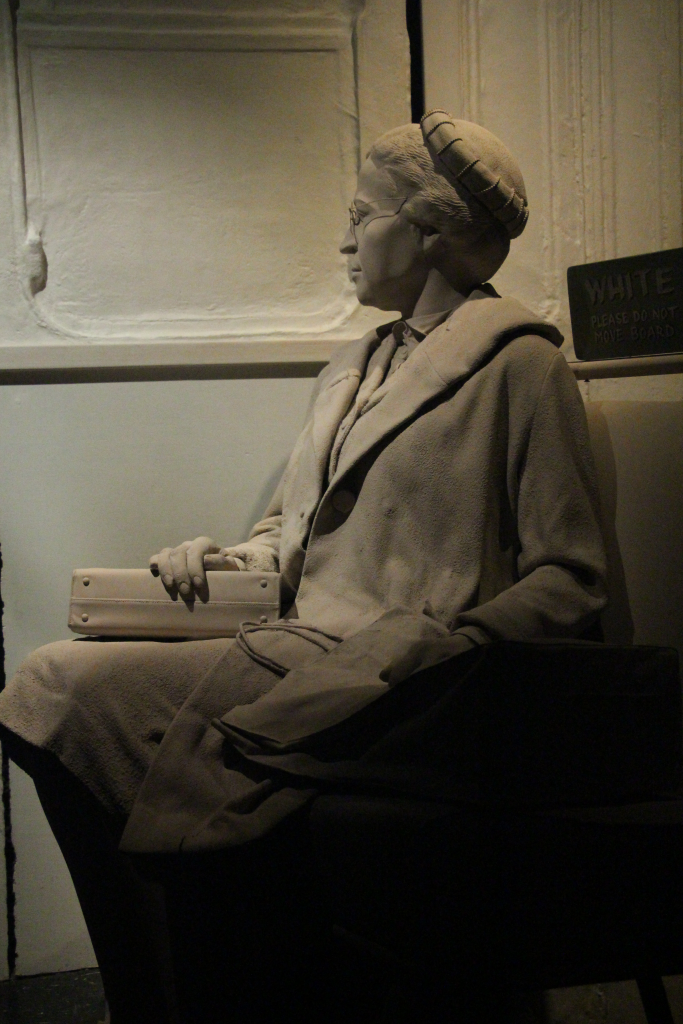By: Jinwoo Jung, 2024 Cohort
Diversity, civil rights and racial human justice has come a long way in the United States.
However, the current level of racial and ethnic diversity that is celebrated in the United States took centuries to achieve. People all over the nation advocated for the rights of people who did not get the same treatment as the ones who oppressed them.
Actions such as working to abolish slavery and integration amplified the voices of the people who fought for justice. But how far have the rights of the people come?
There are still movements that happen in the world today. Movements such as the Black Lives Matter and Asian Lives Matter movements work to emphasize African American lives and Asian lives in the United States.
In order to talk about how far civil rights have come, we need to understand the fundamentals about major game-changing events that led up to achieving certain rights. Surprisingly, the fight for freedom of oppressed races in America began in Gloucester County, Virginia, in 1633 long before the country was officially established.
According to National Geographic, the Gloucester County rebellion was the first slave revolt against white English settlers. In the new colony, English oppressors needed some way to get work done and they used slaves as a tool for farming and housecare.
African slaves, after 44 years of enslavement, sought freedom that sparked a revolt against the slave-holding settlers. Although their plot failed, the rebellion inspired an urge for freedom that continued on.
Almost two centuries after the first rebellion of slavery and many rebellions later, the Civil War in the United States broke out. Before and during the Civil War, famous and impactful actions such as the Underground Railroad, a network of people who helped slaves go to the North region in the United States, and Nat Turner’s Rebellion, a slave rebellion that took place in August 1831 in Southampton, New York, pushed more people in America to help slaves seek a better quality of life.
According to History.com, the two opposing forces fought for its rights and eventually, the Confederates, the South, lost. The loss by Confederates and the victory of the Union finally decided the issue of slavery after centuries of debate. On December 6, 1865, the 13th Amendment abolished slavery in the United States. This event did not happen just because of the war. It happened because there were advocates who acted against slavery.
The people who worked to fight against slavery came from many different backgrounds, including white and Black individuals. Famous advocates including Harriet Tubman, Frederick Douglas and President Abraham Lincoln, along with many more, contributed to the abolishment of slavery.
Although slavery was abolished, there was still hatred and segregation between different races. Many people in the nation still held racist views that were based on skin color. Some believed it was necessary to show hatred toward people of other races that they believed were inferior to them.
Because of these problems, more modern activists took matters into their own hands and helped show the nation its true identity and history of racial oppression.
Advocates such as Rosa Parks, Martin Luther King Jr. and Malcom X contributed to the modern Civil Rights Movement of the 1950s and 1960s promoted freedom for themselves and generations that would follow them.
Rosa Parks, an American activist, sought freedom in the world by not giving a seat up for a white person on the bus. She was later arrested, which started the bus boycott.
Photo by Jinwoo Jung

Oppressed groups held protests, organized themselves and created a strong community that stood firmly against segregation. Groups such as the National Association of Advancement of Colored People (NAACP) created strong communities of people that were against segregation.
The list of these people and groups go on and on and the work that they put in the movements really shook the nation which led to the end of legal segregation. Furthermore, the movements broke stereotypes of different classes and races which broke down the racial boundaries. The breakdown of these segregated systems created a tighter bond between Americans of different backgrounds.
In the 21st century, we can see different races coming together to fight against racism, for example The Black Lives Matter movement. According to a historical video from the Civil Rights Memorial Center in Montgomery, Alabama, there were waves of protests that showed the country more about the lives and struggles of African Americans throughout the United States.
After George Floyd was killed by police, people further grew tired of racism and having to deal with race-based injustices. They took matters into their own hands and shared their experiences with the world.
Also, Asian lives were threatened during and after the COVID-19 epidemic. This caused Asian people to protest and demand their own security in the United States.
Erin Stoneking is a professor of Gender and Race Studies at the University of Alabama, and she said civil rights has come a long way.

“The struggle for civil rights was a long and hard-fought era of profound significance to our past and present,” Stoneking said. “Its victories led to transformative legislation and the dismantling of legal systems of segregation.”
Erin Stoneking, a professor of Gender and Race Studies at the University of Alabama, speaks about slavery on campus and emphasizes the importance and development of civil rights.
Photo by Jinwoo Jung
Stoneking, however, said civil rights is still an ongoing process.
“I think it’s important to recognize, however, that while great strides have obviously been made since the 1940s-1960s in terms of securing equal protection under the law and challenging clearly discriminatory laws and policies, we continue to live with many systemic injustices,” she said.
Even with improvements made over the centuries, Stoneking believes that injustices will persist. This is because of the complex backgrounds of different people in the United States, she said. She added that all Americans must address the problems to bring equality to all.
There were advocates who dedicated their lives for the rights of many people. It is true that human rights have come a long way. However, there is still work to be done, such as dismantling racism and social unfairness. This comes down to the people. At the end of the day, we are living in the same diverse world.
